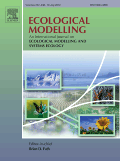
ECOLOGICAL MODELLING
metrics 2024
Advancing ecological insights through innovative modeling.
Introduction
ECOLOGICAL MODELLING, published by Elsevier, is a premier international journal dedicated to advancing the field of ecological modeling. Established in 1975, this reputable journal has consistently served as a vital platform for researchers, professionals, and students alike, reflecting the dynamic nature of ecological research and its applications. With an impressive impact factor, currently placing it in the Q2 quartile for Ecological Modeling and in the prestigious Q1 quartile for Ecology, ECOLOGICAL MODELLING ranks prominently in the scientific community, positioned at #91/461 in Environmental Science - Ecology and #14/41 in Environmental Science - Ecological Modeling according to Scopus rankings. The journal seeks to publish high-quality, interdisciplinary research that enhances understanding and predictive capacity regarding ecological processes and their integration into real-world applications. While the journal does not currently offer open access, it remains a cornerstone for knowledge dissemination within the ecological community, ensuring that your valuable research reaches a wide audience.
Metrics 2024
 0.82
0.82 2.60
2.60 2.90
2.90 181
181Metrics History
Rank 2024
Scopus
IF (Web Of Science)
JCI (Web Of Science)
Quartile History
Similar Journals

Annual Review of Ecology Evolution and Systematics
Synthesizing Knowledge for a Sustainable FutureThe Annual Review of Ecology, Evolution, and Systematics, published by Annual Reviews, is a leading academic journal dedicated to advancing the understanding of ecological and evolutionary processes. With a commendable impact factor and impressive rankings—9th in both the Ecology, Evolution, Behavior and Systematics category and the Environmental Science category—this journal is recognized for its rigorous peer-reviewed articles that synthesize research findings across a wide range of topics within the fields of ecology and evolutionary biology. Established in 2003, this annual publication aims to provide researchers, professionals, and students with comprehensive insights into the latest developments and trends within these dynamic disciplines. By facilitating access to high-quality scholarly articles, the Annual Review of Ecology, Evolution, and Systematics continues to play a crucial role in fostering scientific discourse and discovery.
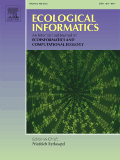
Ecological Informatics
Bridging ecology and informatics for a sustainable future.Ecological Informatics is a premier journal published by Elsevier, dedicated to advancing the interdisciplinary fields of ecology and informatics since its inception in 2006. With its ISSN 1574-9541 and E-ISSN 1878-0512, this Netherlands-based journal has established itself as a leading platform for high-quality research, reflected in its impressive Q1 rankings across multiple categories including Applied Mathematics, Computational Theory, Ecology, and Ecological Modeling, showcasing its critical role in shaping scientific discourse in these important domains. The journal ranks in the top percentiles for various fields: for instance, it stands at rank #26/635 in Applied Mathematics and #8/41 in Ecological Modeling according to Scopus. Though it currently does not offer open access options, its commitment to publishing impactful studies underscores its significance to researchers, professionals, and students interested in ecological and computational methodologies. Researchers in these fields are encouraged to explore and contribute to this respected journal as it continues to inspire innovative solutions for ecological challenges.
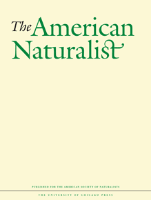
AMERICAN NATURALIST
Exploring the Depths of Ecology and EvolutionAMERICAN NATURALIST, published by University of Chicago Press, stands as a premier outlet for scholarly research in the fields of ecology, evolution, behavior, and systematics. With an impact factor that reflects its high citation rate, the journal has garnered a reputation within the academic community, evidenced by its placement in the Q1 category of its discipline in 2023 and an impressive Scopus rank of #135 out of 721 journals, positioning it in the 81st percentile for Agricultural and Biological Sciences. The journal, established in 1946, continues to uphold its commitment to advancing scientific knowledge through rigorous peer-reviewed articles. Researchers and professionals will find AMERICAN NATURALIST an essential resource, providing insights and discussions that illuminate complex biological phenomena, while fostering a deeper understanding of the natural world. As an essential reading for students and seasoned experts alike, its curated body of work encourages innovative thinking and exploration across an array of ecological and evolutionary topics.
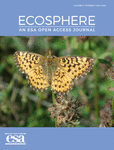
Ecosphere
Elevating the discourse in ecology and evolution.Ecosphere is a leading open-access journal published by WILEY, dedicated to advancing research in the fields of ecology, evolution, behavior, and systematics. Established in 2010 and headquartered in the United States, this innovative journal provides a platform for the exchange of cutting-edge scientific knowledge and discovery, fulfilling its mission to enhance our understanding of ecological systems and their interactions. With a prestigious impact factor reflecting its commitment to high-quality research, Ecosphere is ranked Q1 in both Ecology and Ecology, Evolution, Behavior, and Systematics for 2023, further solidifying its prominence in the scientific community. The journal's scope includes a wide array of topics related to environmental science, making it an essential resource for researchers, professionals, and students aiming to stay at the forefront of ecological research. It offers comprehensive open access options, ensuring that groundbreaking findings are readily available to a global audience, thus fostering collaboration and innovation in the field.

Ecological Processes
Unraveling the complexities of ecosystems through research.Ecological Processes, published by Springer, is a premier open-access journal dedicated to advancing the understanding of ecological modeling and ecological processes. With a significant impact factor evidenced by its prestigious Q1 ranking in both Ecological Modeling and Ecology categories, as well as impressive Scopus rankings—41st out of 461 in Environmental Science and 7th out of 41 in Ecological Modeling—this journal is a vital resource for researchers, professionals, and students alike. Established in 2012 and operating under an open-access framework since its inception, Ecological Processes strives to provide a platform for high-quality research that addresses critical ecological challenges, ensuring wide dissemination of its articles to a global audience. The journal's focus encompasses various aspects of ecological modeling as well as practical implications for managing natural resources, making it an essential publication for anyone interested in the dynamics of ecological systems and their implications for sustainability.

POPULATION ECOLOGY
Exploring the intricate dynamics of species and ecosystems.Population Ecology is a leading journal dedicated to the advancement of research in the field of ecology, evolution, and behavior, published by the esteemed Wiley in Japan. With an impact factor indicative of its academic significance and ranked Q2 in the 2023 Ecology category, this journal serves as a pivotal resource for researchers, professionals, and students alike, facilitating the dissemination of high-quality research and innovative discussions. Covering diverse aspects of ecological dynamics, population processes, and their evolutionary implications, Population Ecology fosters a deeper understanding of species interactions and environmental factors shaping ecosystems. Available in both print and online formats (E-ISSN 1438-390X), the journal is committed to open access to enhance public engagement and accessibility to crucial scientific findings, ultimately contributing to informed decision-making regarding biodiversity and conservation efforts. With a robust ranking of #235 out of 721 in Agricultural and Biological Sciences, it is poised to remain at the forefront of ecological research through 2024 and beyond.
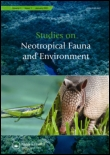
STUDIES ON NEOTROPICAL FAUNA AND ENVIRONMENT
Advancing Knowledge on Fauna and Environmental DynamicsSTUDIES ON NEOTROPICAL FAUNA AND ENVIRONMENT is a distinguished academic journal published by Taylor & Francis Ltd, dedicated to advancing the fields of Animal Science, Zoology, and Ecology. With an ISSN of 0165-0521 and an E-ISSN of 1744-5140, this journal has been a significant outlet for scholarly research since its inception in 1976, continuing to provide critical insights into neotropical biodiversity and the environmental intricacies of this rich ecological region through 2024. Recognized in the Q3 category for both Animal Science and Ecology, the journal ranks at #232/490 in Animal Science and Zoology and #402/721 in Ecology, marking it as a valuable resource for researchers, professionals, and students interested in ecological and zoological studies. By offering a platform for innovative research and comprehensive reviews, the journal aims to bridge the gap between theory and practical application, facilitating a deeper understanding of the unique challenges and conservation strategies relevant to neotropical ecosystems. Although not an open-access journal, it plays a crucial role in fostering academic discourse and knowledge dissemination in its field, ensuring that critical advancements in understanding neotropical fauna and environmental dynamics reach a diverse and engaged audience.
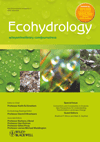
Ecohydrology
Exploring the Nexus of Water and EcosystemsEcohydrology is a prestigious academic journal published by WILEY that focuses on the interplay between ecological and hydrological systems. With a robust ISSN of 1936-0584 and E-ISSN 1936-0592, it has established itself as a leading source in its field since its inception in 2009. Positioned in the top quartile (Q1) of various categories, including Aquatic Science, Earth-Surface Processes, and Ecology, the journal leverages its high impact factor to attract significant scholarly contributions. The recent rankings in Scopus place Ecohydrology among the top-tier journals, with notable percentile standings—79th in Ecology, Evolution, Behavior and Systematics, and 77th in both Aquatic Science and Environmental Science. Aimed at researchers, professionals, and students, the journal provides a vital platform for disseminating new insights and methodologies that address pressing environmental challenges. Despite not being an open-access journal, Ecohydrology offers a wealth of knowledge that is crucial for advancing our understanding of ecosystem dynamics and sustainable water resource management.
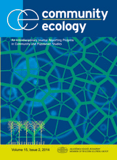
COMMUNITY ECOLOGY
Bridging Theory and Practice in Community EcologyCOMMUNITY ECOLOGY is a distinguished journal published by Springer Heidelberg that focuses on the intricate dynamics of ecological interactions within communities. Established in 2000 and continuing robustly through to 2024, this journal aims to disseminate significant research findings that contribute to the understanding of ecological processes, species interactions, and community structures. With an ISSN of 1585-8553 and an E-ISSN of 1588-2756, the journal holds a commendable position in the academic sphere, reflected in its Q2 quartile rankings in the categories of Ecology and Ecology, Evolution, Behavior and Systematics. It boasts an impressive Scopus ranking within the 57th percentile for both Agricultural and Biological Sciences and Environmental Science fields, attesting to its relevance and influence. Though it does not currently operate under an open access model, COMMUNITY ECOLOGY remains a vital resource for researchers, professionals, and students eager to advance their knowledge in community ecology, highlighting the importance of collaborative research in addressing ecological challenges globally.

Methods in Ecology and Evolution
Fostering collaboration for a deeper understanding of biological systems.Methods in Ecology and Evolution, published by WILEY, is a leading journal in the fields of ecology, evolution, and environmental science, with an impact factor that reflects its high-quality research contributions. Since its inception in 2011, this journal has become a cornerstone for researchers and practitioners, offering a platform for innovative methodologies and transformative insights that advance our understanding of ecological and evolutionary processes. With a prestigious Q1 ranking in both Ecological Modeling and Ecology, Evolution, Behavior and Systematics, the journal stands out among its peers, being ranked #28 out of 721 in the Agricultural and Biological Sciences category and #4 out of 41 in Environmental Science. The journal's comprehensive scope encourages interdisciplinary collaboration, making it an essential resource for anyone working at the intersection of ecological research and data modeling. Although it does not offer open access, the wealth of knowledge within its pages is invaluable for developing effective conservation strategies and understanding complex biological systems.